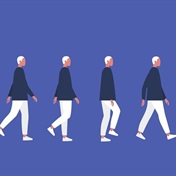Researchers, led by Rush University in Chicago, looked at 823 older people who were free of dementia at the study start and annually assessed their level of loneliness for up to four years to determine if it had any impact on the development of Alzheimer's disease. Individuals in the group had an average age of 80.3 years when the study began. Data were collected from November 2000 through to May 2006.
Overall, those who ranked the highest on a loneliness scale were twice as likely to develop the type of dementia associated with Alzheimer's disease. Dementia refers to people who have lost memory, have trouble thinking and caring for themselves. Alzheimer's disease is the most common cause of dementia. The findings are published in the February issue of Archives of General Psychiatry.
Up to double the dementia risk
Loneliness was measured on a scale of one to five, with higher scores indicating more loneliness. During the first exam, the average loneliness score of participants was 2.3. Those in the highest quintile of loneliness, or a score of 3.2, were 2.1 times more likely to be diagnosed with Alzheimer's disease over the study period as those with low scores, or 1.4. During the study period, 76 individuals developed dementia that met criteria for Alzheimer's disease.
One of the researchers, Robert S. Wilson, explained that a clinical diagnosis of Alzheimer's can differ from a pathological diagnosis in that an autopsy of the brain is performed after death to see if there are actual signs of the disease such as plaques and tangles in the brain. Participants in the loneliness study are part of a broader US National Institutes of Health-funded study on ageing.
Wilson also said loneliness differs from social isolation in that people feel alone whether they are actually alone or not.
Researchers noted that the level of loneliness didn't vary much during the study.
While it might be tough to find ways to make people feel less lonely, Wilson said, the findings suggest another mechanism in the brain or the body might be responsible for, or contribute to, the development of Alzheimer's disease than what is currently known. That could open up new areas for research, he said.
The study was funded by grants from the US National Institute on Ageing, a unit of the US National Institutes of Health and the Illinois Department of Public Health. – (Dao Jones)
Read more:
Alzheimer’s Centre
Mind Centre
February 2007




 Publications
Publications
 Partners
Partners










